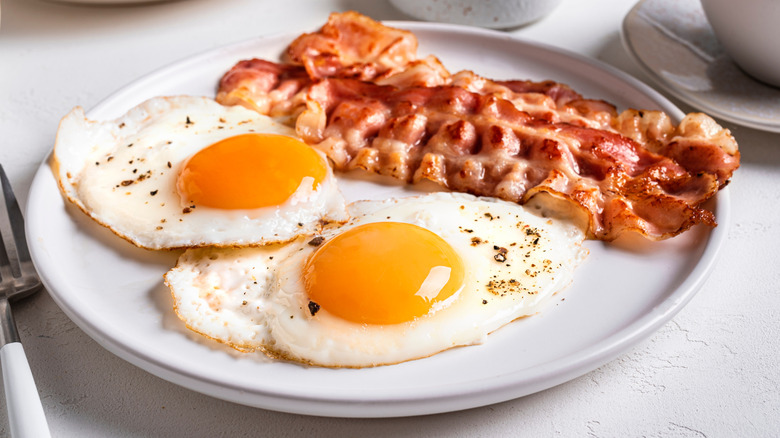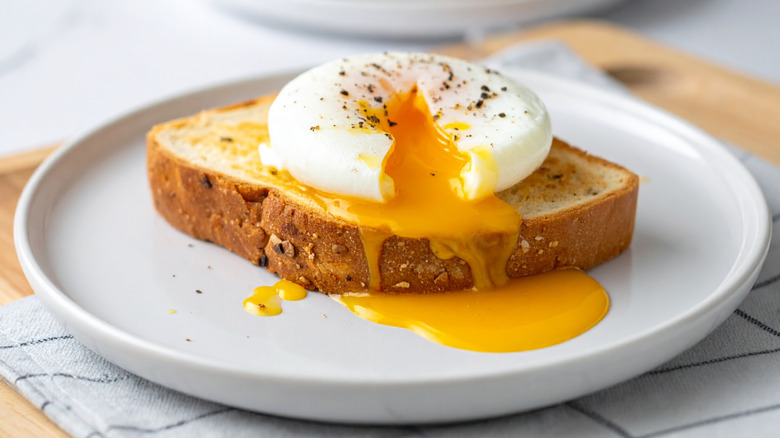Runny Fried Eggs Are Safe To Eat — As Long As They're This Variety
If you're of the mind that the deliciously runny yolk should burst out of your fried egg the moment you prick it, you may have wondered if this delightful egg preparation is safe to eat. We've all heard that raw eggs are a salmonella risk, but what about ones that are perfectly — if not quite fully — cooked? Sadly, but not surprisingly, the Centers for Disease Control and Prevention (CDC) recommends cooking eggs until the yolks and whites are firm.
However, all hope is not lost for those that prefer their fried eggs on the easy side of over easy. According to the CDC, pasteurized eggs are a safer option for use in foods involving eggs that won't be fully cooked, such as hollandaise sauce, salad dressing, chocolate mayonnaise (the mousse that time forgot), and yes, runny fried eggs.
Pasteurized eggs are simply regular raw eggs that have been heated to between 130 and 140 degrees Fahrenheit for a specific amount of time to kill harmful bacteria such as salmonella. All egg products with eggs outside of their shell, such as liquid egg whites, are required to be pasteurized by the United States Department of Agriculture (USDA). The eggs you buy by the dozen are not required to be pasteurized and usually aren't.
Is it worth it to use pasteurized eggs for eggs with runny yolks?
The good news is that pasteurized eggs are easy to identify — just look for the ones that say "pasteurized" on the carton and have a small red "P" stamped on each shell. The bad news is that only about 3% of eggs sold at U.S. stores are pasteurized, and if you do find them, they'll generally be more expensive than your average supermarket dozen. Alternatively, you can pasteurize your own eggs at home using a sous vide machine.
Of course, not every food influencer who films satisfying yolk-popping videos is using pasteurized eggs. The truth is, the majority of eggs purchased in the United States won't make you sick, even if they are undercooked. However, there's always a risk of getting a salmonella-contaminated egg, and that risk is dramatically reduced in pasteurized eggs.
Whether pasteurized eggs are worth it to you is a matter of personal risk tolerance (kind of like eating raw cookie dough, which the CDC also advises against). However, pasteurized eggs are a great option if you're in a high-risk group for food poisoning or simply want to enjoy yolk-soaked breakfast sammies with greater confidence. Whether your eggs are pasteurized or not, be sure to steer clear of these egg cooking mistakes to stay safe.

